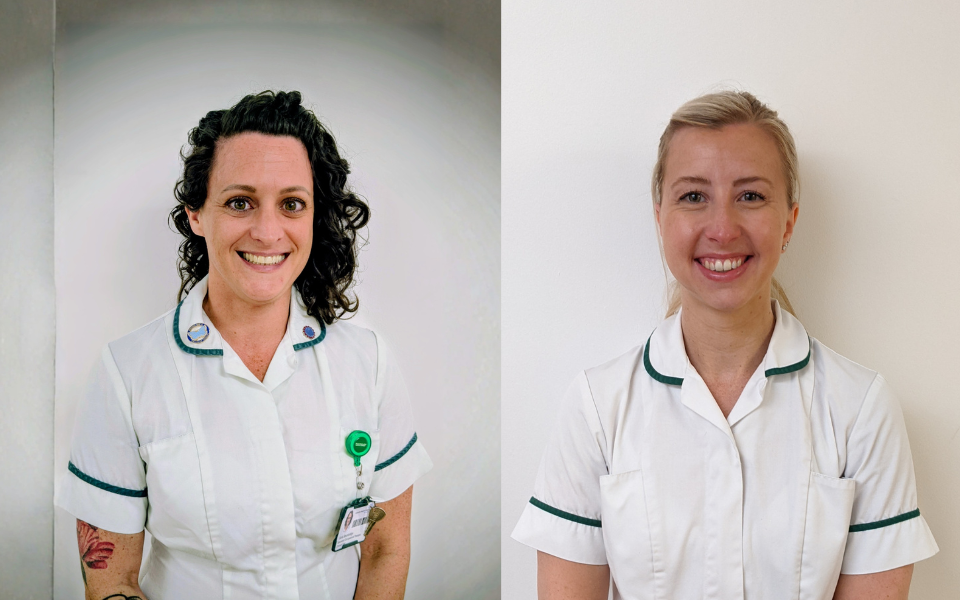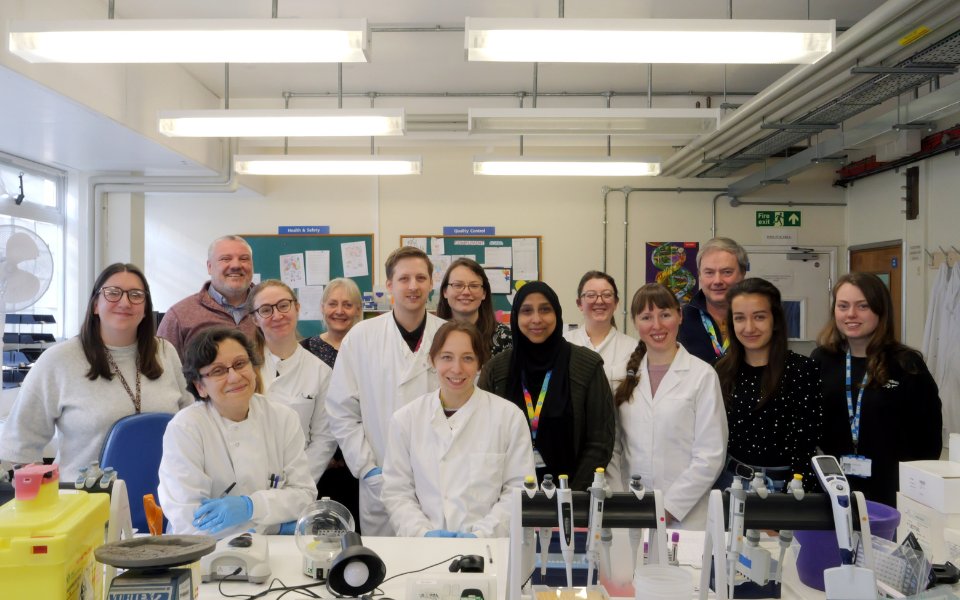
Healthcare science
Behind the Breakthroughs: Celebrating Biomedical Science Day with Our Molecular Pathology Team
Biomedical Science Day celebrates the vital role of Biomedical Scientists in the Healthcare Science workforce, particularly within pathology departments. These highly skilled professionals are crucial in diagnostics, delivering critical laboratory testing that supports patient care across our Trust and the NHS as a whole
Most Biomedical Scientists undertake a degree in Biomedical Science, gaining the specialist knowledge and laboratory expertise required for their roles. Whilst Associate Practitioners, who support the work of laboratory teams, can also progress into Biomedical Scientist positions through further study and training, offering a valuable pathway for career development within the field.
Wessex Genomics Laboratory Service (WGLS) is the local genomics laboratory across two sites in Salisbury and Southampton. WGLS partners with other NHS Trusts to deliver genomic testing to a population of approximately 12 million patients in the West Midlands, Thames Valley and Wessex regions.
The laboratory uses a variety of scientific techniques to analyse genetic material (“DNA”) in a blood or tissue sample from patients with cancer and rare diseases, where genomic abnormalities can contribute to a diagnosis, influence treatment decisions (pharmacogenomics) or indicate a prognosis.
The team (Photo above of our Molecular Pathology Team) is comprised of scientific, administrative and managerial staff, each contributing to a full genomic testing pathway from receipt of samples through to testing and analysis, and ensuring the day-to-day and long-term success of the department.
Let’s look under the microscope at some of the Southampton service team members as we celebrate Biomedical Science Day, 2025!
What does your role involve? And how does it contribute to patient care at UHS?
Abbie, Associate Practitioner: My role involves processing samples from patients at UHS and from wider trusts. This involves a variety of processes, from DNA extraction from FFPE samples from cancer patients to testing peripheral blood samples for HLA B27 testing, working with Flow Cytometry to produce a result for a patient. The strong element of teamwork in my role ensures we work collectively with other pathology departments to provide the best service for our patients and clinical teams.
Hannah, Specialist Biomedical Scientist: My job involves a variety of tasks, including the day to day testing of patient samples for assays including but not limited to clonality testing (looking for evidence of malignancy in lymphocytes (aiding a diagnosis of lymphoma)), DPYD testing (assessing patients for one type of drug sensitivity), thrombophilia screening (assessing genetic predispositions for blood clotting problems) and solid tumour NGS testing (identifying actionable variants to assess risk or direct therapy for solid organ cancers such as breast cancer). I also participate in the duty scientist rota to be a point of contact for queries both within and from outside the laboratory. As a senior scientist I have responsibility for checking and releasing some results to the clinicians and also play a key role in managing the quality system, such as competency assessing colleagues, investigating errors or updating practices. My roles contribute to patient care by releasing results that positively affect patient outcomes, providing support for colleagues when required ensuring high levels of quality are maintained in the department.
Charlotte, Operations Manager: I lead on all operational management across our two laboratory sites including team management, procurement, finance, project management, resource management including IT, governance and I provide senior leadership across the service. I make sure that the service we provide meets the clinical and scientific requirements of our patients. Our service provides timely, quality results to patients for the diagnosis, treatment and management of rare disease and cancer and my role is to make sure that happens smoothly.
Can you share an example of how your work or a recent innovation in your field has made a difference to our patients or helped improve outcomes generally?
Stephen, Laboratory Manager: The increased use of LAMP technology (a faster and cheaper way to test DNA) has opened up our ability to provide rapid results to patients and have a direct affect on their care, for example testing for chemotherapy drug sensitivity. It has enabled “near patient” testing to become a much more useful tool to help clinicians make decisions around treatment options at a time when cost has become an important consideration.
What’s something people might not know about your field or the technology/science you use daily?
Abbie, Associate Practitioner: Since being on the lab bench, one of the techniques I have enjoyed learning is manual DNA extraction from fresh tissue, which we use for our clonality testing. The process is technical, and the end result is very satisfying when you quantify the DNA. It’s nice to know the robots won’t be taking over any time soon for our more intricate processes!
What excites you most about the future of healthcare science, and why?
Abbie, Associate Practitioner: I recently attended the Festival of Genomics and Biodata, a conference held in London, where all the latest updates from every possible field involved in genetics and genomics are given. I’m very excited by the prospect of liquid biopsies, which will mean less intrusive and quicker testing for patients, combined with the constant evolution of the technology involved in genomics, could mean the future of healthcare science in genomics will have a huge impact on patient care- especially in the cancer field.
Charlotte, Operations Manager: The ability for new technologies to be across all our traditional pathology disciplines. I trained and worked in Microbiology and now work in Genomics and see huge cross over in the technologies used. Genomic medicine will go across all disciplines in the future and make testing personalised for the patient.
What do you enjoy most about your role and why?
Thomas, Associate Practitioner: What I most enjoy about my role is the work environment I work in and the colleagues I work with. We have a meeting every morning to work out which jobs need doing and how we’re going to get them done. I always feel that we’re a team of people pulling in the same direction to help get patients the best care we can. There are lots of steps in every assay we run which are often done by different people, but I always have trust in us as a team that it will be a seamless process because of the good communication we have with each other. All the members of my team are also very knowledgeable in genomics and have a vested interest in the services we provided. This helps to give a positive atmosphere in the workplace as we are proud of the difference our work is having.
Samah, Biomedical Scientist: I enjoy that I am helping people who are not feeling well and most vulnerable. I love the sense of pride and purpose that working for the NHS gives. I see my role is my way of contributing to the health and wellbeing of my local community. Moreover, I see the NHS is a precious gift, that we should all cherish, keep and develop. Also, I enjoy the ability to work and succeed under pressure, since every day brings a new challenge. In my role, I like working within large team, and I feel privileged to meet and work with highly specialised scientists and other clinical professions. As importantly, I am delighted to share my experience with other members of the team, I find training and supervising learning process is an opportunity to develop and sharpen my skills as educator in Biomedical Sciences field.
Charlotte, Operations Manager: The most enjoyable part of my job has always been helping people in our team achieve their goals. That might be just becoming confident in a new lab test, gaining a new qualification, or even getting a promotion. Seeing people grow professionally and personally will always be the most rewarding part of the role.
Biomedical Science Day is a moment to shine a spotlight on the skilled professionals whose work underpins modern healthcare, often behind the scenes but always at the heart of patient care. The incredible work of our Molecular Pathology team at Wessex Genomics Laboratory Service showcases the real-world impact of careers in this field from transforming patient care to pioneering the future of genomics.
Whether you’re fascinated by cutting-edge technology, passionate about patient care, or inspired by science that truly makes a difference, a career in biomedical science could be the perfect fit for you. Our teams are full of people who started just like you with curiosity, ambition, and a drive to help others.
Start your journey with us today.
Explore our Careers site to find exciting opportunities and discover how you can be part of the next generation of healthcare science professionals.
Let’s celebrate the science behind the scenes and the people who make it happen!
Related Blogs
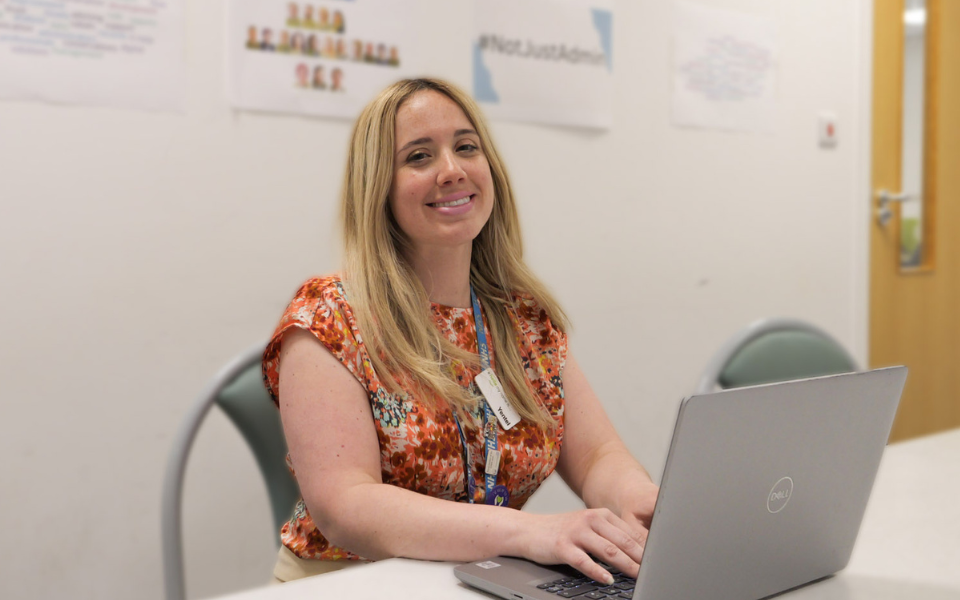
From Sports Coach to NHS Innovator: How Yentel Found Purpose at UHS
More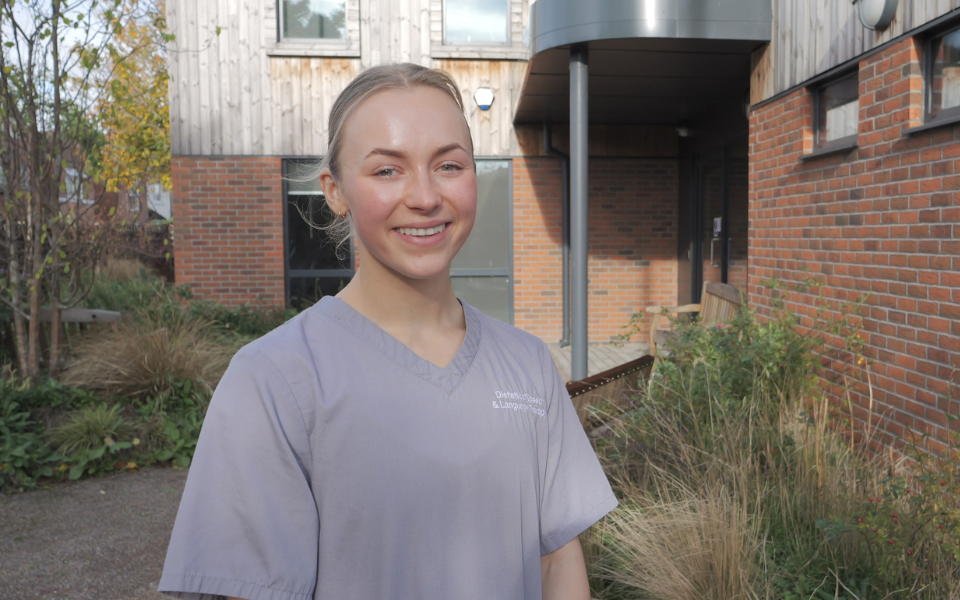
Supporting Newly Qualified Professionals: The Impact of Preceptorship at UHS – Goda’s Story
More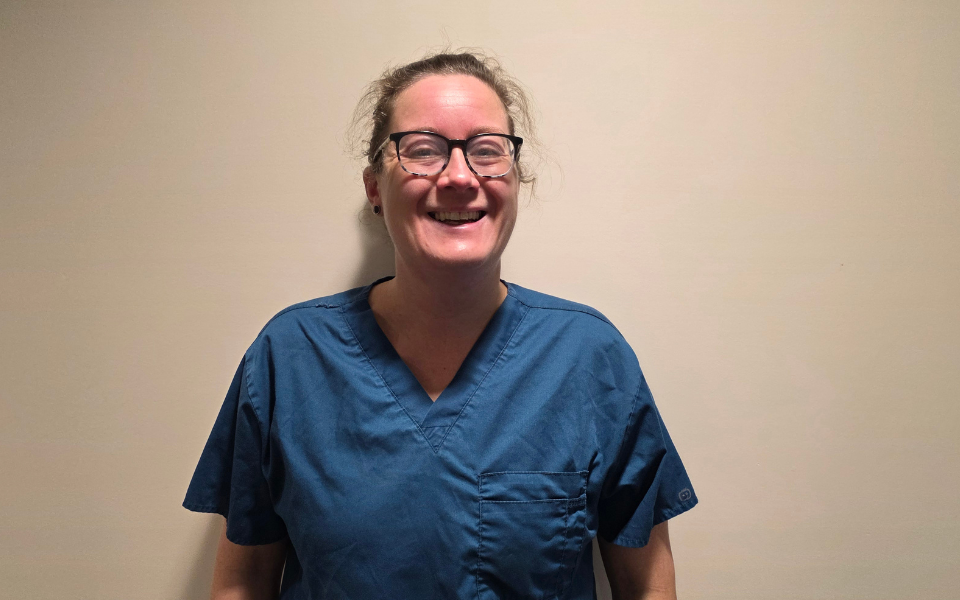
From Childhood Dream to NHS Specialist: Lizzi’s Journey in Pharmacy
More